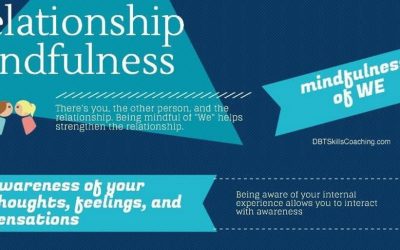In mental health, vulnerability factors are the circumstances and experiences that affect your ability to cope well or regulate your emotions. For example, being tired, hungry, experiencing financial difficulties or having a history of PTSD would be vulnerability factors for many. When your vulnerability factors are higher, you are more likely to act in ways that make the situation worse instead of acting skillfully.
So the stay at home orders and the devastation of COVID19 are vulnerability factors for us all. This means that no matter how skill-full you are, you are likely to be more reactive and more susceptible to emotion mind. For example, you may be more likely to lose your temper, be tempted by unhealthy behaviors, try to control others, or to stop taking care of the basics such as eating healthy and getting enough sleep.
Maddie’s 21-year-old daughter, Rachel, lives with her. Rachel’s messiness normally irritates Maddie, who prefers everything in its place. In her Family Connections class, Maddie learned effective ways to talk with Rachel about the messiness, and using those skills have made a positive difference in their relationship. Today though, after 2 weeks of Rachel being home all day long, Maddie’s irritation is over the top. Maddie tries to push her emotions down, but they keep growing. She rolls her eyes, bites her lip, and has thoughts about how she cannot believe how selfish her daughter is. Finally, she is so angry that she yells at her daughter, her voice harsh and her face showing her rage.
So, part of coping well is to be mindful that, when you are stressed, it is more difficult to be skillful. You are more likely to go back to old, unhelpful behaviors. You react impulsively, on emotion. Situations that you normally can handle with no problem escalate to the point of creating more problems.
Be aware of your internal experience and monitor your levels of tension. Don’t expect yourself to handle situations as you would without the additional stress you are under. Be gentle with yourself! Take more breaks, plan ahead for interactions that could be difficult, and be thoughtful about soothing, validating, and being compassionate with yourself. No one is perfect and we all are experiencing difficult times.
And, by the way, it’s more important than ever to reduce the vulnerability factors that you can control, such as eating well, exercising and getting enough sleep. Live a skill-full life!





0 Comments